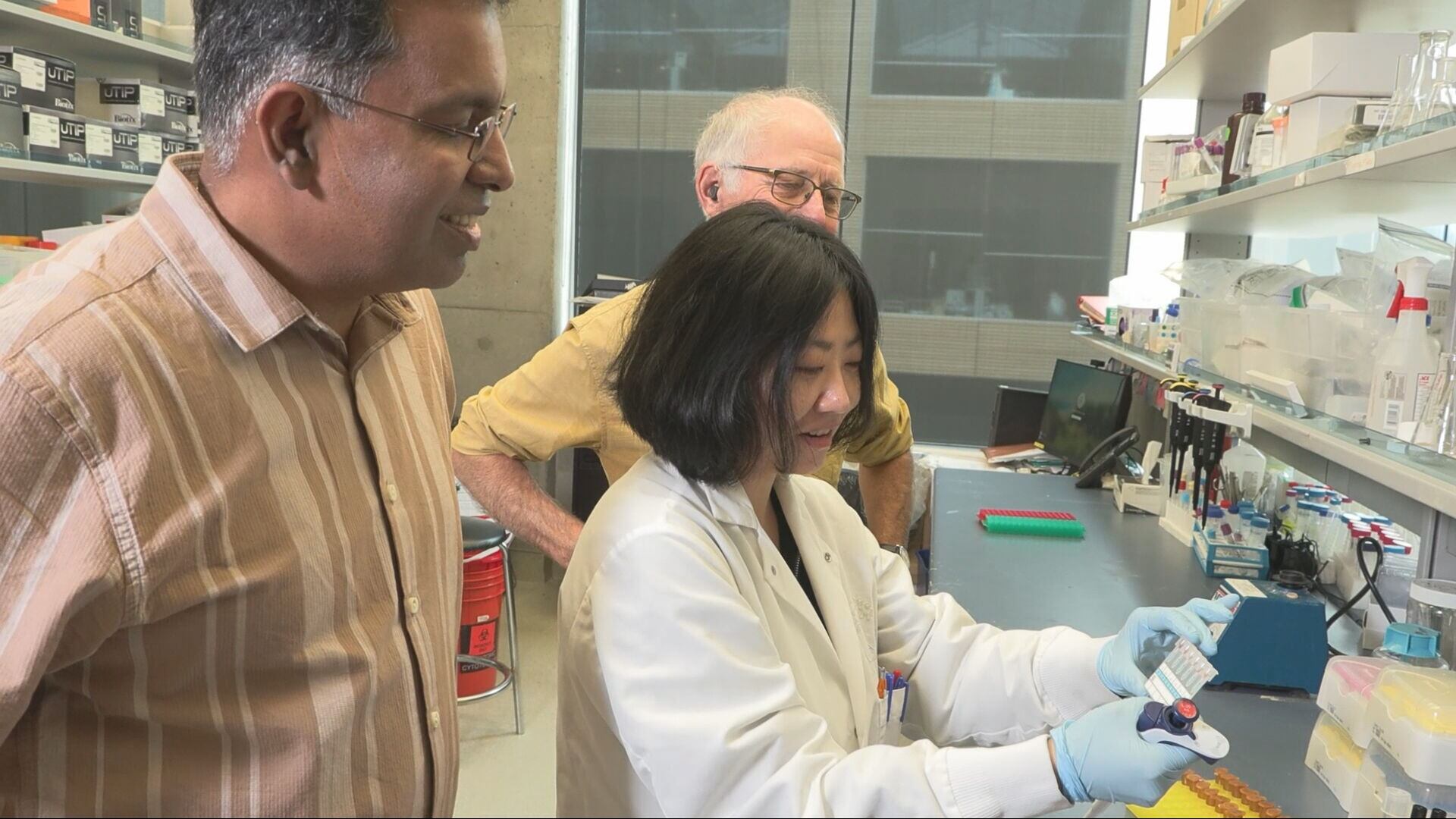Science
UBC Enzyme Breakthrough Achieves Milestone in Organ Transplants

A groundbreaking advancement in organ transplantation has emerged from the University of British Columbia (UBC), where researchers successfully completed the first human trial of a new enzyme technology. This innovative approach holds the potential to significantly enhance the viability of organ transplants for thousands of patients across North America.
The clinical trial, which concluded in March 2024, tested a novel enzyme designed to improve organ compatibility and reduce the risk of rejection. According to Dr. Jonathan D. Smith, the lead researcher, this technology could transform the landscape of organ transplantation, making it more accessible and effective. The trial involved a diverse group of participants, all of whom were closely monitored for safety and efficacy throughout the process.
Initial results from the trial have been promising. Preliminary data indicates that the enzyme not only enhances the acceptance of transplanted organs but also minimizes the need for long-term immunosuppressive therapy, which can have serious side effects. The implications of this finding are significant, as it could lead to better outcomes for patients and a decrease in healthcare costs associated with organ rejection treatments.
Potential Impact on Transplant Patients
Organ transplants are a critical medical intervention for patients with end-stage organ failure, but the limited availability of compatible organs remains a major challenge. According to the United Network for Organ Sharing, as of January 2024, over 104,000 people are on the waiting list for organ transplants in the United States alone. With the success of this enzyme technology, experts believe that the gap between supply and demand for organs could be narrowed.
Dr. Smith emphasized that the long-term goal is to create a universal organ transplant system, where organs can be used across different blood types and genetic backgrounds, vastly increasing the number of available organs. “If we can make organs universally acceptable, we can save many more lives,” he stated.
The next step for UBC researchers involves larger-scale trials to further validate the initial findings. These upcoming studies will also explore the enzyme’s effects on a broader range of organ types and patient demographics. As the research progresses, the team aims to collaborate with hospitals and transplant centers to facilitate the integration of this technology into clinical practice.
Looking Ahead: Challenges and Opportunities
While the results are encouraging, challenges remain in bringing this technology to widespread use. Regulatory approval will be necessary before the enzyme can be used routinely in transplant procedures. Additionally, researchers will need to address potential ethical concerns surrounding organ allocation and the implications of a universal organ system.
Funding for continued research will also be crucial. The project has received initial support from both government and private sources, but further investment will be needed to complete the next phases of testing. Dr. Smith and his team are actively seeking partnerships with biotechnology firms and healthcare organizations to help drive the project forward.
The successful completion of this trial is just the beginning of what could be a revolutionary change in the field of organ transplantation. As UBC continues to explore the possibilities of enzyme technology, the hope is that it will lead to a future where organ rejection is a thing of the past, and every patient in need has access to a life-saving transplant.
-

 Education3 months ago
Education3 months agoBrandon University’s Failed $5 Million Project Sparks Oversight Review
-

 Science4 months ago
Science4 months agoMicrosoft Confirms U.S. Law Overrules Canadian Data Sovereignty
-

 Lifestyle3 months ago
Lifestyle3 months agoWinnipeg Celebrates Culinary Creativity During Le Burger Week 2025
-

 Health4 months ago
Health4 months agoMontreal’s Groupe Marcelle Leads Canadian Cosmetic Industry Growth
-

 Science4 months ago
Science4 months agoTech Innovator Amandipp Singh Transforms Hiring for Disabled
-

 Technology4 months ago
Technology4 months agoDragon Ball: Sparking! Zero Launching on Switch and Switch 2 This November
-

 Education4 months ago
Education4 months agoRed River College Launches New Programs to Address Industry Needs
-

 Technology4 months ago
Technology4 months agoGoogle Pixel 10 Pro Fold Specs Unveiled Ahead of Launch
-

 Business3 months ago
Business3 months agoRocket Lab Reports Strong Q2 2025 Revenue Growth and Future Plans
-

 Technology2 months ago
Technology2 months agoDiscord Faces Serious Security Breach Affecting Millions
-

 Education4 months ago
Education4 months agoAlberta Teachers’ Strike: Potential Impacts on Students and Families
-

 Education3 months ago
Education3 months agoNew SĆIȺNEW̱ SṮEȽIṮḴEȽ Elementary Opens in Langford for 2025/2026 Year
-

 Science4 months ago
Science4 months agoChina’s Wukong Spacesuit Sets New Standard for AI in Space
-

 Business4 months ago
Business4 months agoBNA Brewing to Open New Bowling Alley in Downtown Penticton
-

 Technology4 months ago
Technology4 months agoWorld of Warcraft Players Buzz Over 19-Quest Bee Challenge
-

 Business4 months ago
Business4 months agoNew Estimates Reveal ChatGPT-5 Energy Use Could Soar
-

 Business4 months ago
Business4 months agoDawson City Residents Rally Around Buy Canadian Movement
-

 Technology2 months ago
Technology2 months agoHuawei MatePad 12X Redefines Tablet Experience for Professionals
-

 Technology4 months ago
Technology4 months agoFuture Entertainment Launches DDoD with Gameplay Trailer Showcase
-

 Technology4 months ago
Technology4 months agoGlobal Launch of Ragnarok M: Classic Set for September 3, 2025
-

 Top Stories3 months ago
Top Stories3 months agoBlue Jays Shift José Berríos to Bullpen Ahead of Playoffs
-

 Technology4 months ago
Technology4 months agoInnovative 140W GaN Travel Adapter Combines Power and Convenience
-

 Science4 months ago
Science4 months agoXi Labs Innovates with New AI Operating System Set for 2025 Launch
-

 Technology4 months ago
Technology4 months agoNew IDR01 Smart Ring Offers Advanced Sports Tracking for $169










